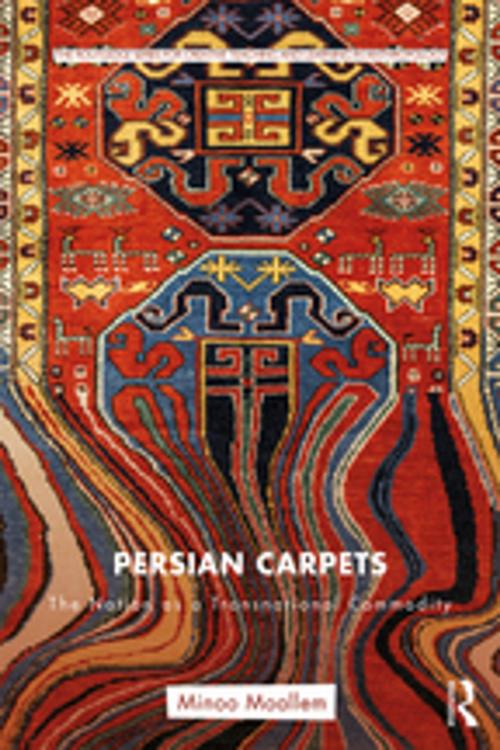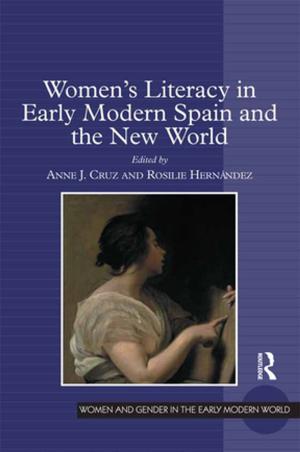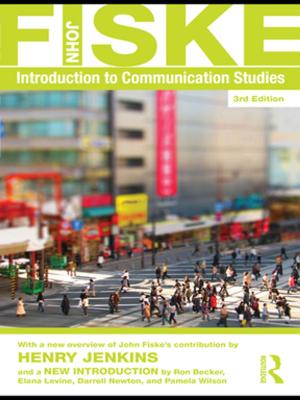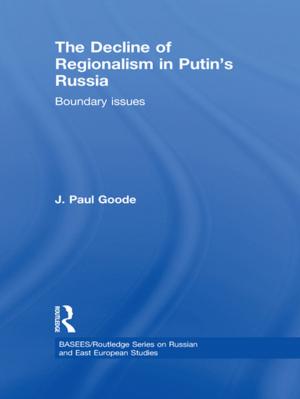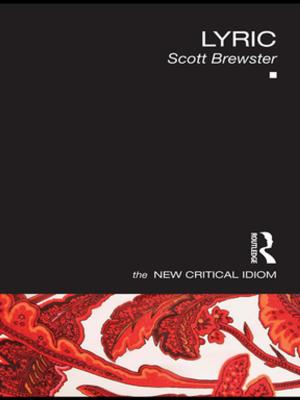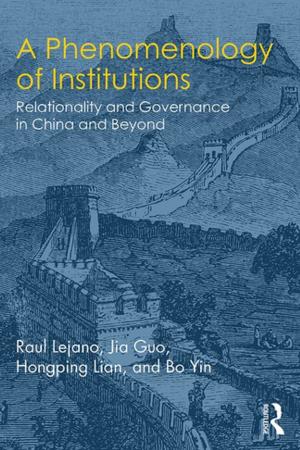Persian Carpets
The Nation as a Transnational Commodity
Nonfiction, Social & Cultural Studies, Social Science, Sociology| Author: | Minoo Moallem | ISBN: | 9781351970082 |
| Publisher: | Taylor and Francis | Publication: | May 16, 2018 |
| Imprint: | Routledge | Language: | English |
| Author: | Minoo Moallem |
| ISBN: | 9781351970082 |
| Publisher: | Taylor and Francis |
| Publication: | May 16, 2018 |
| Imprint: | Routledge |
| Language: | English |
Persian Carpets: the Nation As a Transnational Commodity tracks the Persian carpet as an exotic and mythological object, as a commodity, and as an image from mid-nineteenth-century England to contemporary Iran and the Iranian diaspora. Following the journey of this single object, the book brings issues of labor into conversation with the politics of aesthetics. It focuses on the carpet as a commodity which crosses the boundaries of private and public, religious and secular, culture and economy, modern and traditional, home and diaspora, and art and commodity to tell the story of transnational interconnectivity.
Bringing transnational feminist cultural studies, ethnography, and network studies within the same frame of reference, this book sheds light on Orientalia as civilizational objects that emerged as commodities in the encounter between the West and the many directly or indirectly colonized Middle Eastern and West Asian cultures, focusing on the specific example of Persian carpets as some of the most extensively valued and traded objects since colonial modernity.
Persian Carpets: the Nation As a Transnational Commodity tracks the Persian carpet as an exotic and mythological object, as a commodity, and as an image from mid-nineteenth-century England to contemporary Iran and the Iranian diaspora. Following the journey of this single object, the book brings issues of labor into conversation with the politics of aesthetics. It focuses on the carpet as a commodity which crosses the boundaries of private and public, religious and secular, culture and economy, modern and traditional, home and diaspora, and art and commodity to tell the story of transnational interconnectivity.
Bringing transnational feminist cultural studies, ethnography, and network studies within the same frame of reference, this book sheds light on Orientalia as civilizational objects that emerged as commodities in the encounter between the West and the many directly or indirectly colonized Middle Eastern and West Asian cultures, focusing on the specific example of Persian carpets as some of the most extensively valued and traded objects since colonial modernity.
